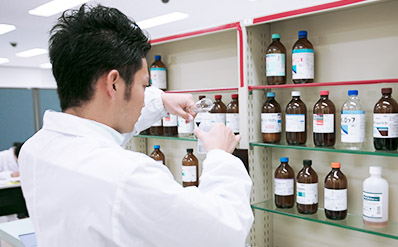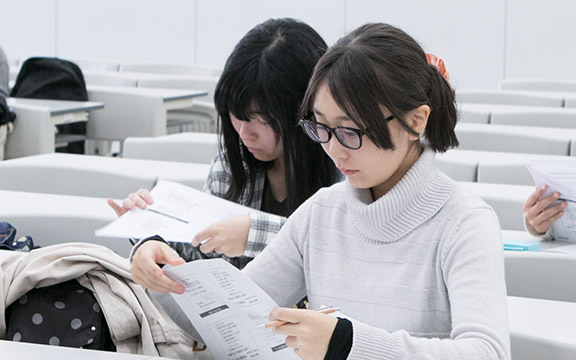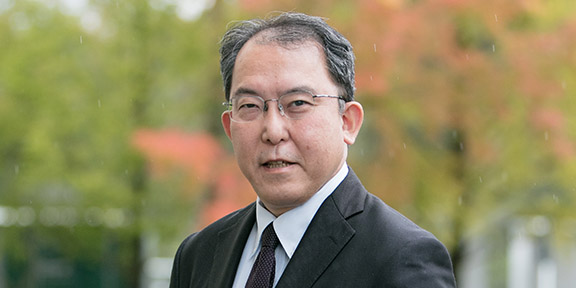Toshiya Katsura,Professor
- Department: Department of Pharmacy
- Laboratory: Laboratory of Drug Delivery Research

The role of pharmacists, which, in the past, primarily consisted of dispensing medications, is changing greatly to include, for example, consulting with patients about their health as medication professionals at the patients’ bedside, such as in hospital wards and in the patients’ homes, as part of a medical team. This includes making proposals for prescriptions in cooperation with the hospital’s doctors. These social needs will continue to change and develop in the future. What students of the pharmaceutical sciences will need going forward is not just knowledge; they will also require the flexibility to identify changes in social needs acutely and respond to those changes. The College of Pharmaceutical Sciences will cultivate pharmacists who possess a research mindset that they will use to question all manner of things and engage in the task of answering those questions autonomously.

1st Year students will be given hands-on experiences of the work of pharmacists and drug-related jobs, which will help them to formulate a vision of their own future.

Through a five-month practicum at a hospital and pharmacy, students will learn the skills and responsibilities of pharmacists.

As the culmination of their six years of study, students will bring all of their accumulated expert knowledge into a Comprehensive Pharmacy Exercise and deliver a presentation of their Graduation Research.

Pass rate of National Examination for Pharmacists
91.8%
※106th National Examination for Pharmacists
※Pass rates are for new graduates
Cultivating professionals who will acquire expert knowledge through a well-balanced pharmaceutical sciences curriculum and who are able to contribute to society.

